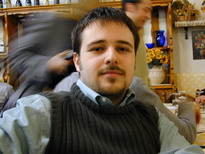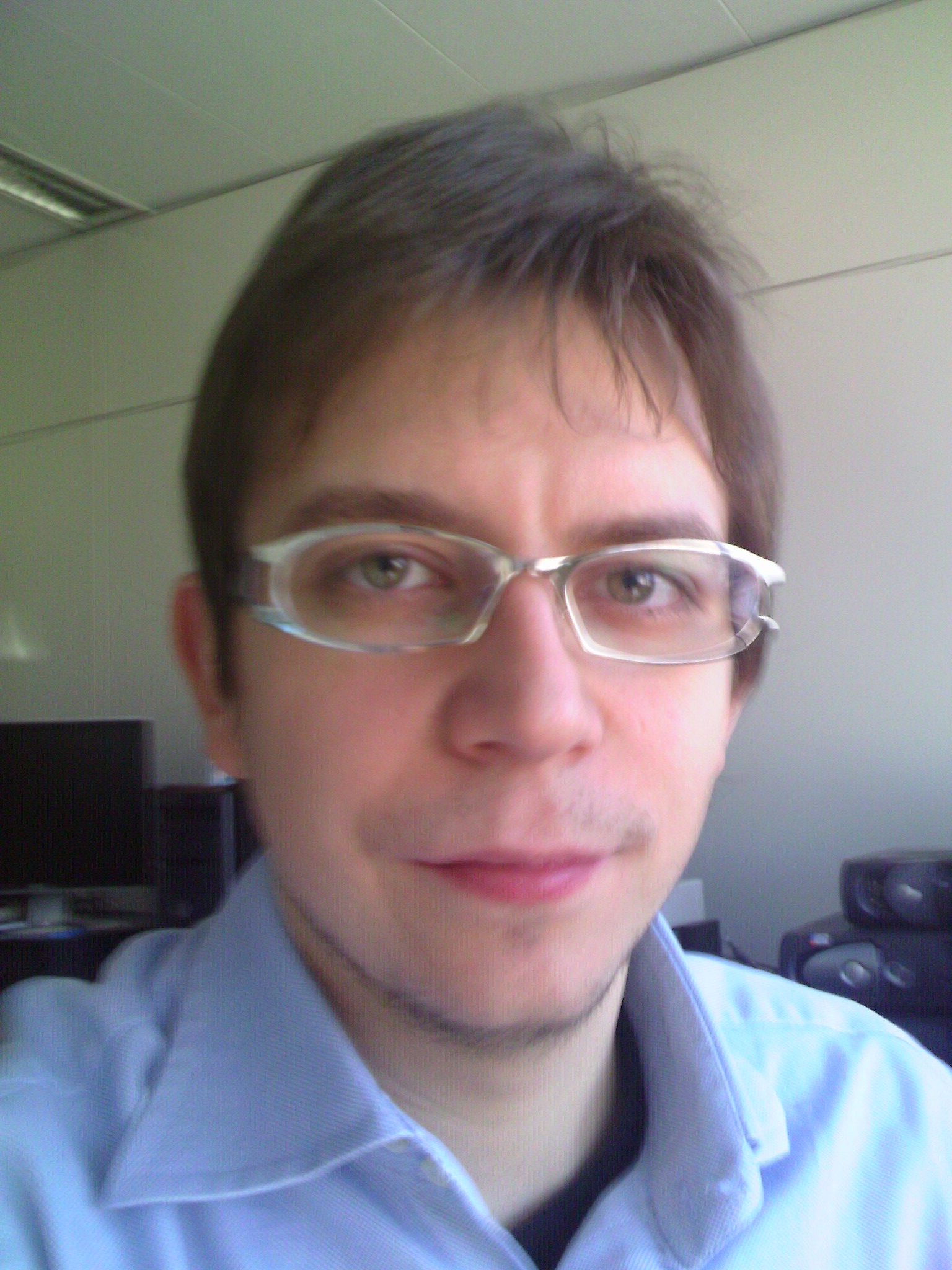Ore 9.30 "JXTA: a dead end way to Grid?"
Abstract: JXTA (a short for Juxtapose) was proposed by Sun Microsystems as framework for P2P networking in 2001.
In the next years, several projects start with the goal to build computational grids middleware over JXTA.
In this talk, we will review JXTA features suitable for Grid computing and we look over main open source projects which based their architectures on JXTA.
Finally,we will analyse some critical issues emerged in that projects that prevent JXTA to fully meet the requirements of a computational Grid.
 |
Marco Ferrante is a LDAP and directory specialist. He is currently PhD canditate in Computer Science at the University of Genoa (Italy).
Formerly, he was responsible for directory and e-mail services for the same University and he worked as network manager in other higher education institutions. |
|
Ore 10.00 GridGain is a mature framework for easily implement Grid Computing functionalities in Java Programs.
The GridGain project is focused on impact as less as possible on the developing process; the result is a product that integrates with many datagrid products, communication an monitoring frameworks and application servers.
In this presentetion we'll see many of the interesting aspects if this framework and how it can be easily integrated in java software.
 |
Paolo Vernazza was born in Genova in 1977. In 2006 he got a Laurea degree in Computer Engineering from the University of Genoa. Since 2000 he has been a software consultant for Mobyt s.r.l., a company focused on mobile services. In 2007 he started a Ph.D. at the Department of Communication, Computer and System Sciences (DIST) within the Faculty of Engineering of the University of Genoa. His primary research field is in Wireless Sensor Networks. |
|
Ore 10.30 The GRID according to Microsoft
The aim of this report is to briefly show the tools and the environment Microsoft offers for supporting GRID computing. The talk is focused on the operating systems supporting clustering techniques: the Windows Compute Cluster Server 2003 and the new Windows High Performance Computing Server 2008 (the official release is scheduled for February 27). The main features of the two servers are reported, along with a review of the most recent technologies that Microsoft provides for distributed programming, server management and system interconnections (Windows Communication Foundation, Windows Workflow Foundation, Powershell, .NET 3.5, improved TCP/IPů). The combined use of these technologies and the aforementioned server operating systems originates an interesting ecosystem which takes its first steps into the high performance computing world.
 |
Andrea Passadore
was born in Genoa in 1980. In 2006 he received a Master Degree in Computer Engineering at the University of Genoa . He is currently a PhD student at the l.i.d.o. lab (DIST-University of Genoa ). He is involved in the AgentService project: a multi-agent platform entirely developed in C# with the support of the .NET Framework. His research interests include also ontologies, Semantic Web and Service Oriented Architectures.
|
|
Ore 11.00 SoRTGrid: A Grid framework compliant with Soft Real Time requirements.
Current Grid Resource Management tools provide sufficient support for jobs executed in batch or ’best effort’
modes, but are not adequate for jobs with demanding Quality of Service requirements, like jobs with time constraints. For such class of applications, the missing of the required deadline can have unpredictable consequences, from loss of quality to inconsistent results. In this paper we present SoRTGrid, a Grid framework that provides a set of services and features to discover and manage resources for Soft Real Time jobs. SoRTGrid is based on a direct comparison of the application requirements with the available resource offers, and relies on a distributed Bid repository coupled with an overlay Grid architecture.
 |
Alessio Merlo was born in Savona in 1980. In 2003 he got a B.Sc. in Computer Science "summa cum laude" from the University of Genoa. From 2003 to 2005 he was awarded an ISICT scholarship and in 2005 he got a M.Sc. in Computer Science "summa cum laude" from the University of Genoa. Currently he is a Ph.D. Student at the Department of Computer Science at University of Genoa where he researches scheduling methods in Grid environments in the P.O.N.G. (Power On the Net
Group) a joint group of DISI, IMATI-CNR and IEIIT-CNR. |
|